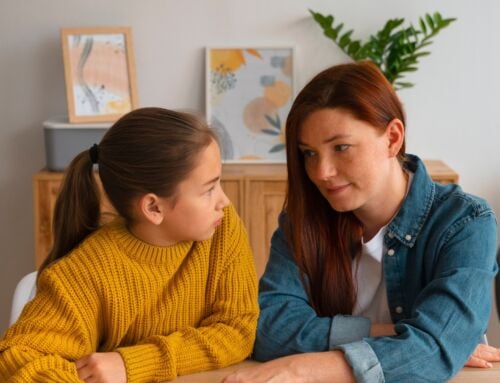Obsessive-Compulsive Disorder (OCD) is one of the most misunderstood mental health conditions. It’s often portrayed in the media as quirky, harmless perfectionism, or reduced to jokes about being “super clean.” But for the millions of people living with OCD, it’s a deeply distressing and time-consuming condition that impacts daily life in significant ways.
The gap between public perception and the reality of OCD can lead to stigma, misdiagnosis, and isolation for those affected. In this blog, we’ll break down some of the most common myths and misconceptions about OCD and replace them with facts, to help increase awareness, promote empathy, and encourage better support for those who live with it.
Common Myths About Obsessive-Compulsive Disorder (OCD)
| Fiction | Fact |
|---|---|
| “Everyone is a little OCD sometimes.” | OCD is a serious mental health condition, not a personality quirk. Being neat or liking routines doesn’t mean someone has OCD. |
| “OCD is just about being clean or tidy.” | While some people with OCD have contamination fears, OCD can involve many themes, like intrusive thoughts about harm, morality, or perfection. |
| “People with OCD can just stop if they try hard enough.” | OCD is not a choice. It involves distressing, unwanted thoughts (obsessions) and repetitive behaviours or mental acts (compulsions) done to reduce anxiety. |
| “If you don’t have visible compulsions, you don’t have OCD.” | Some people experience Pure O (purely obsessional OCD), where the compulsions occur internally, primarily through mental rituals and rumination. In other words, there are no visible outward compulsions. |
| “OCD is rare.” | OCD affects about 1–2% of the population, making it relatively common. It can impact anyone, regardless of age, gender, or background. |
| “It’s easy to tell if someone has OCD.” | OCD can be invisible and exhausting. Many people hide their symptoms due to shame or misunderstanding. |
| “Therapy doesn’t help OCD.” | Evidence-based treatments like CBT with Exposure and Response Prevention (ERP) and sometimes medication can be highly effective. |
OCD and Neurodivergence
While Obsessive-Compulsive Disorder (OCD) is classified as a mental health condition, there is growing recognition of the ways it can overlap with neurodivergence. Many neurodivergent individuals, particularly those with autism or ADHD, may experience obsessive thinking, sensory sensitivities, or repetitive behaviours that resemble OCD symptoms.
However, the motivations behind these behaviours can differ. For example, a person with autism may engage in routines for comfort and predictability, while someone with OCD performs compulsions to relieve intense anxiety caused by intrusive thoughts. It’s also possible for individuals to be both neurodivergent and have OCD, which can complicate diagnosis and treatment. Understanding this overlap is important to avoid mislabelling and to provide appropriate, individualised support.
How to Support Someone with OCD
If you think your or someone you care about might be experiencing Obsessive-Compulsive Disorder (OCD), one of the most powerful things you can offer is empathy without judgment. OCD often involves intrusive, distressing thoughts that the person may feel ashamed of or afraid to share.
Let them know you’re a safe person to talk to. Listen without minimising their experience or trying to “logic away” their fears. Avoid encouraging or participating in compulsions (like checking or reassurance-seeking), as this can unintentionally reinforce the cycle.
Instead, gently encourage them to seek professional support, especially from a therapist experienced in OCD and neurodiversity-informed care. Be patient: progress takes time, and recovery isn’t linear. Just showing up with understanding, consistency, and respect for their autonomy can make a world of difference.
Getting Help for OCD
If you or someone you care about may be experiencing what you think might be signs or symptoms of OCD, reaching out for professional help can make a big difference.
- Speak with your GP about a referral to a psychologist or counsellor.
- If you’re in crisis, contact Lifeline (13 11 14) or Emergency Services (000).
- You can also reach out to Beam Health to book an appointment with one of our psychologists who are experienced in supporting individuals with OCD and other anxiety-related conditions.
Understanding OCD helps reduce stigma and opens the door to meaningful support. Whether you’re seeking help for yourself or a loved one, Beam’s Psychology and Mental Health team can work alongside you with empathy and evidence-based strategies.
Image by OCD Doodles on Instagram
We offer psychology and mental health services for children, teens, and adults at our our Kedron, Warners Bay, West Gosford, Tuggerah and Cessnock clinics.
Contact us today to book an appointment or learn more about how we can support you or your family.
Additional Resources
If you’d like to learn more in an accessible and creative way, check out OCD Doodles on Instagram. They share beautiful infographics and educational posts about OCD.










